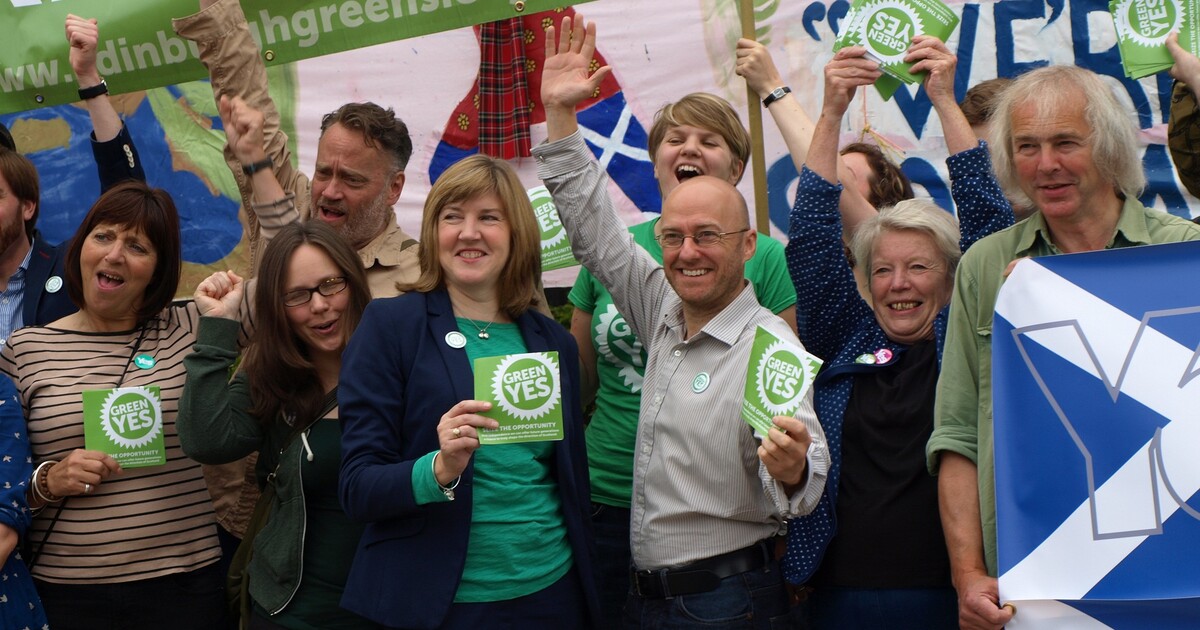We have to be ready to win our independence

The question I’ve been asked most often since being elected as an MSP in May has definitely been: “When do you think Scotland will be independent?” While I’m confident it will happen in the not too distant future – and Brexit has certainly brought it much closer - I also know it won’t fall in to our laps.
Does that mean that the independence movement is in decline? No. The Tories and the remnants of the No campaign would have you believe that the drive for independence is over. Look at the stagnating polls they say, but more than two years after the referendum - which Westminster thought would kill the Yes movement - we are still here. Support for independence has not dropped below 2014 levels and we don’t seem to go a day without discussion of the subject featuring prominently in the media. And we should welcome the shift in tone of some media outlets, rather than drag them over the coals for their past coverage.
In many ways it might not feel like we have taken a step towards independence. In fact, 2016 has been an all-round terrible year for politics, what with Brexit, Westminster intending to ignore Scotland’s decision to stay in EU, a humanitarian failure in Aleppo, the rise of the far-right across Europe and of course, Donald Trump’s election as US president, despite him losing the popular vote by close to three million.
Politics, especially in the Western world might not have seemed so dark for decades. Even here in Scotland, the Tories have surged to second place, though that may prove more a millstone round the union’s neck than ours. We cannot forget though, that we have just ended the parliamentary term with the Scottish Government having published a document considering an independence referendum and with draft referendum legislation on the table.
The document, Scotland’s Place in Europe, is the most detailed plan on any element of Brexit published anywhere on these islands. In saying that, whilst the Greens accept that few options remain available to Scotland, this represents a huge compromise on the government’s part. The reality is that just under two in three people in Scotland voted to stay in the European Union and the options presented in the paper fall well short of that. Indeed, this compromise would probably result in around 40,000 lost jobs and a £1,000 drop in average wages in Scotland. These observations are not meant as criticism of the Scottish Government, or the work which has been put in to this credible set of proposals but they are the reality.
These plans are the maximum limit of compromise, so if the Westminster government fails to accept them, it will signal clearly that Scotland’s interests and wishes are to be ignored completely. This would be an act of contempt that would likely end the UK’s fragile union. The fact that the UK Government has come out with no proposals of its own shows yet again that they are hopelessly out of their depth and dangerously unprepared for the tough, looming negotiations.
It is clear that the only way to guarantee our European future, defend workers’ rights, environmental protections and our freedom of movement is as an independent nation within the European Union. I urge the Scottish Government to proceed with legislation for an independence referendum – we can’t leave ourselves without that option if Theresa May’s government acts as we expect. Scotland did not vote to leave the European Union and we should not be forced to choose the least worst of the options available.
Winning that referendum is far from a certainty though and we should not kid ourselves that independence will be delivered without herculean effort on the part of the Yes movement.
To start with, there are key questions which must be answered before we ask the people to put Scotland’s future in Scotland’s hands. The most obvious of these is that of the currency.
Greens were never in favour of a currency union, sharing the pound with the remainder of the UK but in a world where Scotland is in the EU and the rUK is out, the Scottish Government must realise that option is now impossible. Plans for an independent currency, as the Green Yes campaign proposed in 2014, must be urgently developed, ready for publication before the vote takes place.
Underpinning any currency plans must be a serious industrialisation strategy, creating quality, well-paid and long-lasting jobs and supporting the ambitious social justice policies we would want from our newfound independence. The Green ‘Jobs in the New Economy’ paper from 2015 has started this work and we would welcome contributions from others.
There may well be a chance to win our independence in 2017 but we can’t wait for it. We have to be ready.
This article first appeared in the National
